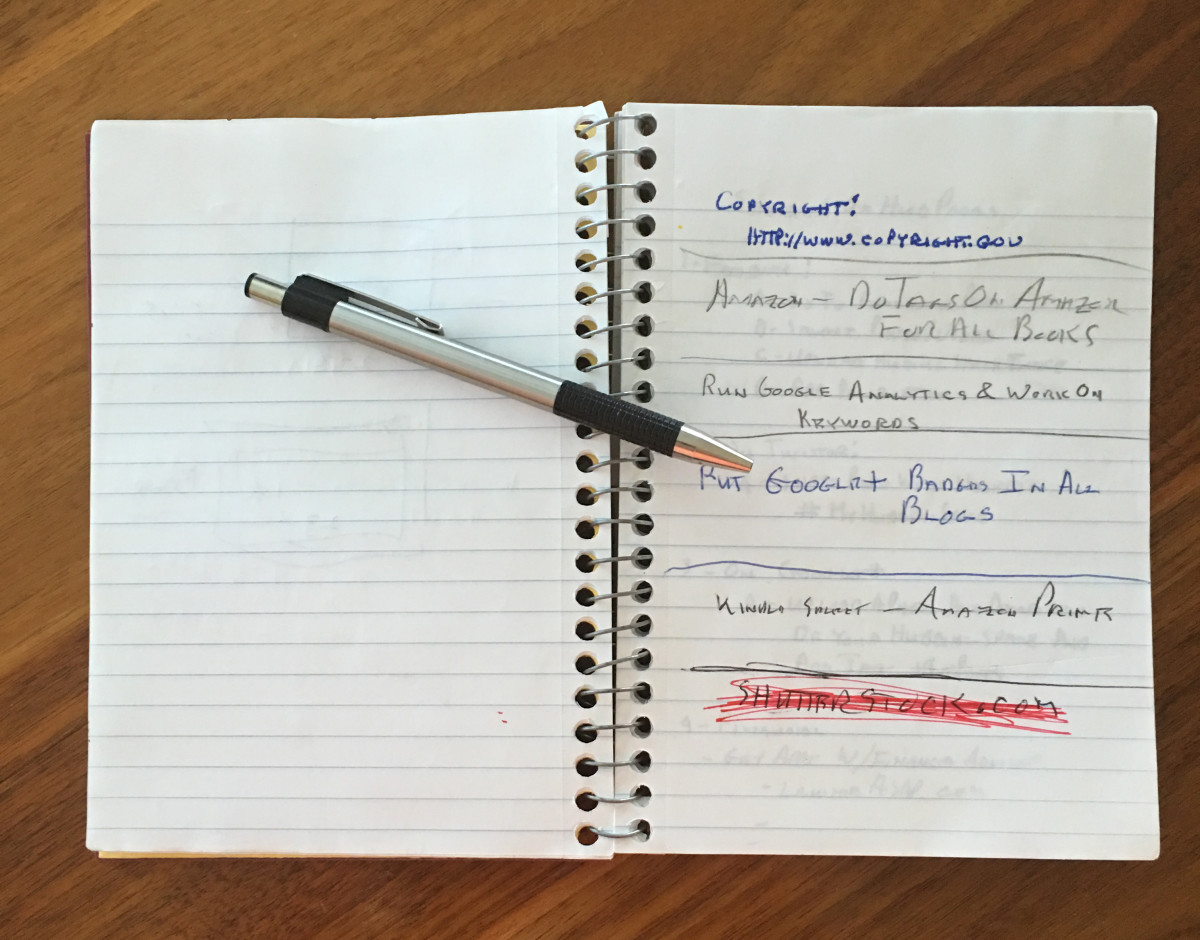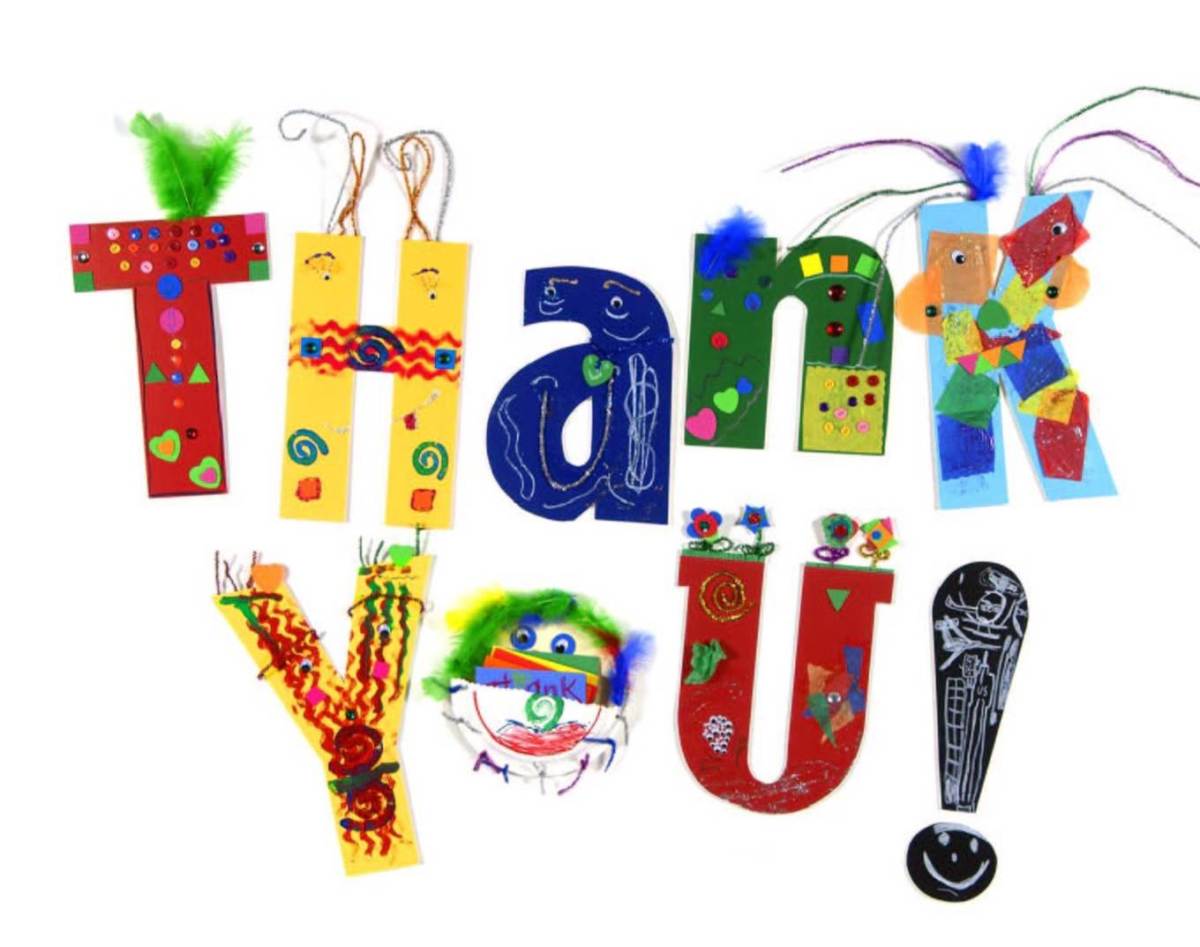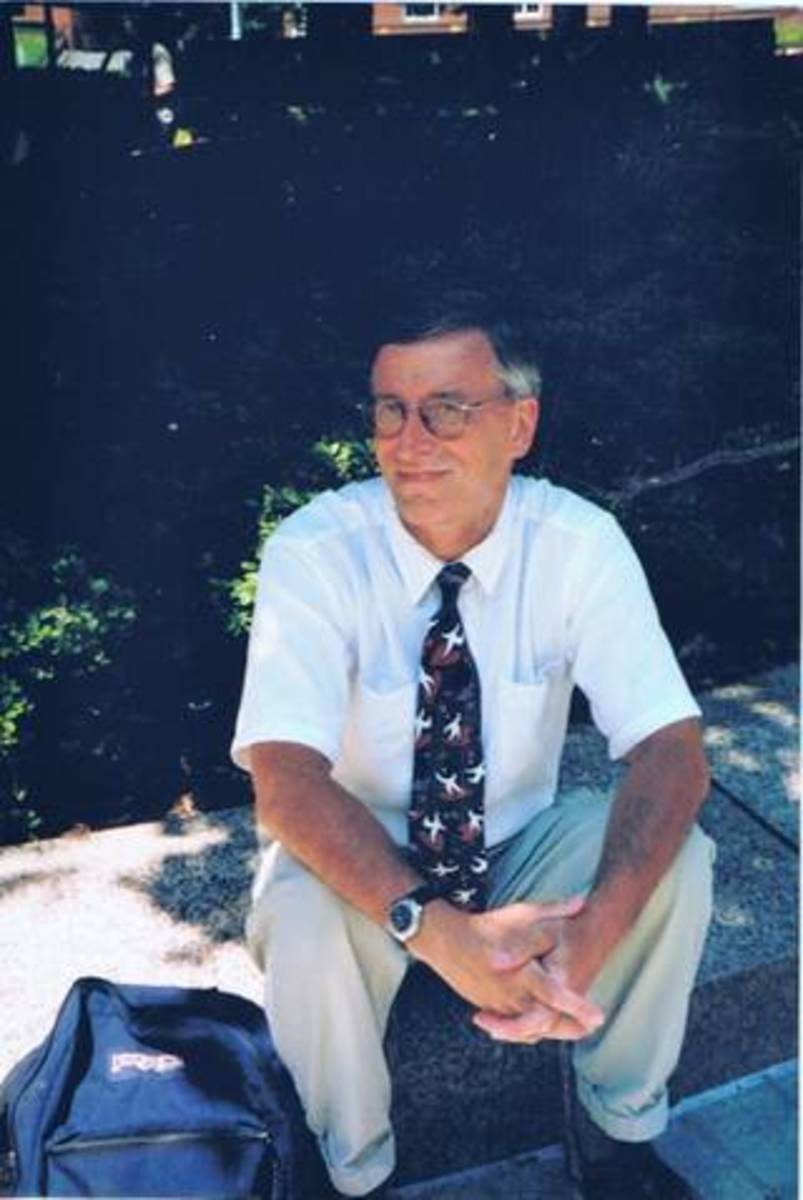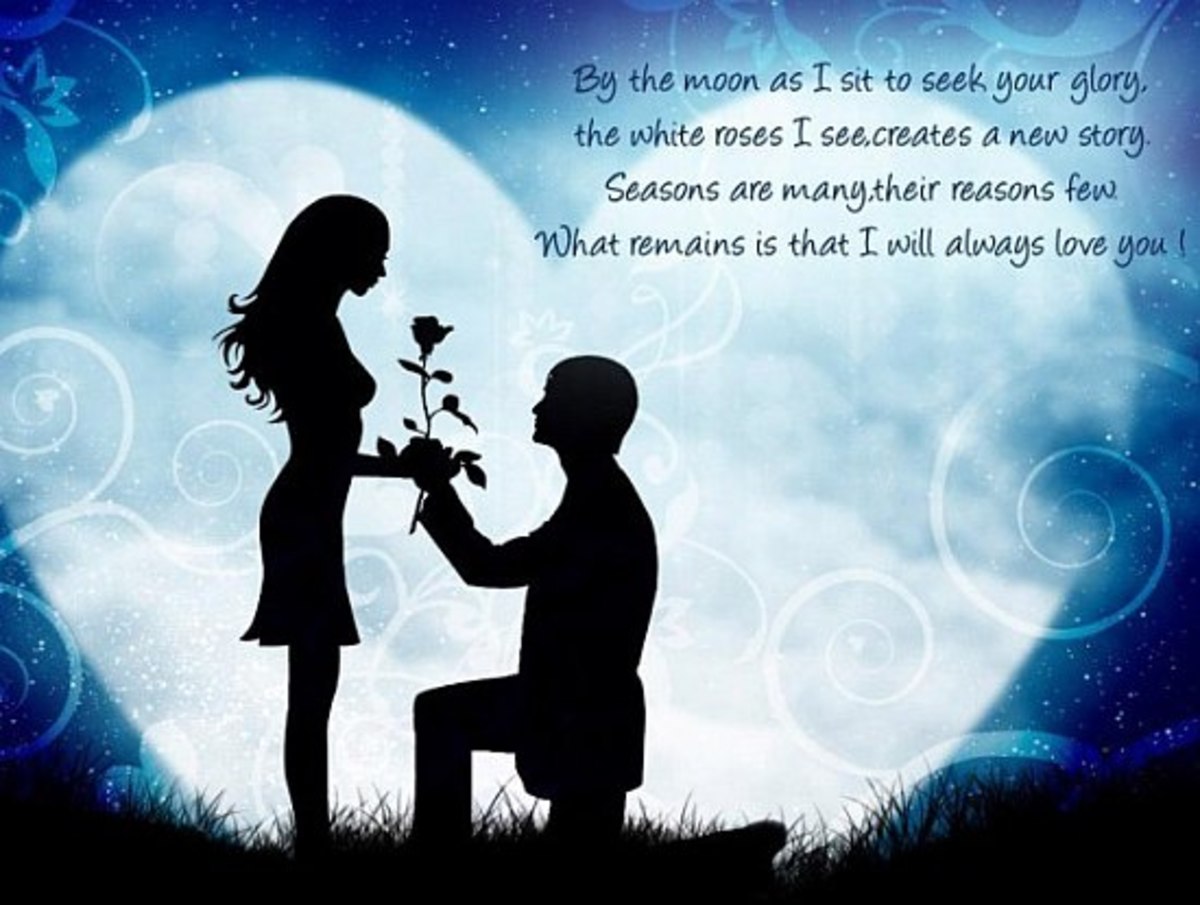Two Million Views of My Article and How I Got There
A Blank Notebook and a pencil are common tools used by writers.

2 MILLION VIEWS on my Hosting site
OK! My arm may hurt a little bit from patting myself on the back, but I just want to crow a little bit because I just passed the 2-MILLION VIEWS mark on my Hosting site.
I started out with my favorite Hosting site ten years ago. At that time I was writing a few short stories, some poetry and even a few of my wife and my favorite recipes and placing them on HP for others to read and enjoy.
Over time, a few of these articles started getting a decent number of “reads” while others were just sitting there, lonely and unread for the most part.
I would check all of my Hubs every few weeks, to see how they were doing; but I still couldn't see why some were popular and others were not. Back then, it was all a mystery to me.
But honestly, I will admit that my head was in other places and I had not yet taken on the task of trying to improve my writing.
If I had another idea, I would just sit down and pump out another article, spell-check it and place it on my Host site with hopes of someone reading them.
I wanted to write an actual Book
Around this time, I started feeling that I could actually write a book. I had this great plot in my head, and like so many other writers I have talked with, the desire to eventually write a book was getting stronger and stronger.
I had to get this Book written!
But after some self-analysis and quick research on the web, I realized I a major problem. After my time writing on HP, I knew in my heart that I still had some seriously weak writing skills.
Even though I had ignored remarks by readers who tried to help me by pointing out my weakness', I really hadn't done much to improve.
I knew that if I wanted to write my. what I thought would be "Great Novel", I had some learning to do.
Here is the path I took to be a better writer.
Writing a Book demands more of a good writer
As I have said, I had been submitting different articles sporadically to HP for about three years when I finally decided that I was good enough of a writer to write a good book.
Yeah now I know, as I look back; I was pretty naive about what I was taking on. Besides, haven’t we all thought about doing this at one time or another, writing that great novel?
You know how it is; you have this great story idea and you figure all you have to do is sit down at your PC and bang your first book out in a few weeks, right?
Well, that was me. But I had no idea how demanding the task of structuring a good story that will hold a reader’s attention and force them to keep turning pages up to the end of your story would be..
But luckily for me, I saw that HP had a section just for writers who were doing the very same thing, learning how to write a great book.
And with my host site as a source along with my web searches, I spend weeks reading everything that my fellow writers were saying about being a book author.
A Self-analysis of my Weakness’ and Strengths.
One of the things that quickly became evident to me during my research was the fact that I had some devastating weakness’ as a writer which would be major roadblocks for my producing my first dream novel.
Before I go into my numerous weakness’ though let me mention what I considered my two strengths.
Literature Courses
I have always been a voracious reader, and while I was in College, I filled my electives up with Literature studies including several years of British literature and a year of American literature.
What I got from these courses, other than exposure to so many classic writings, was a structured understanding of the English language and how the great writers over past centuries had built and sustained the readers interest in their stories.
Technical Writing
My one other skill I felt I could brag about was my past years as a Technical Writer. As an Engineer working in a high-tech field for decades, I often had to write very technical instruction manuals as well as the occasional technical article about a variety of electronic and computer controlled electronic equipments.
But I found that being pretty good at this style of writing was actually as much of a curse and a boon to my book writing goals.
You see, a technical writer is not writing for the casual reader, but rather they are writing for another technical person who just want the facts.
These readers are looking for clear and concise instructions on how the subject equipment or device works and the technical details on the internal functioning of the parts.
Technical articles are devoid of any flowery words and have a minimal number of adjectives. The goal of a technical article is not to tell a story, but to describe the technical information about something in a few words as necessary meant for a select audience of fellow technical people.
Writing a Book, on the other hand demands writing sentences that color what is being described with more details than the typical stripped down technical writings.
My writing strengths
I do and did have one strength that I have used to write a number of short stories, usually about interesting things that happened in my youth.
They would only be about 1000 to 3000 words long, but as a “Storyteller” I could knock these out quite easily.
Again though, for a storyteller to put down a well structured short story on paper, was a little hard for me until I started using what I had learned and practiced about creative writing.
A good short story needs to be told in few words and it need to hold the audience's attention from the first word to the last.
And sad to say, as I learned more about what I was doing wrong, I was regularly returning to my older HP articles and stories and putting them through some serious rewrites.
Some of my stories got longer from a need for a better flow of information, some got shorter as I deleted whole sections and words that were totally unnecessary, and sad to say, some were removed from my Hosting site because I now knew they were beyond repair.
How I Became a Better Writer
Anyway, after my rather lengthy self-analysis, I did develop a plan that would help me make myself a better writer before I even considered actually writing a book.
As I have mentioned, I finally realized I was a virgin Book Writer. I not only did not have a clue what it took to develop my writing skills so I could write a good book.
Simply said, my reality was that I didn't even have an idea how to get a book published, if I did write one.
I sat back and chewed over this for a few weeks and i came up with a plan that suited me. I came up with a 3-step plan.
Step-1 - Write a Simple book first
From my research I felt it would be a good thing for me to write something simple first, just so I could learn about all of the little pitfalls that a novice writer would run into.
I didn't want to be tripping over systemic obstacles that I had learned about in the writing and publishing industry.
I felt that once I started on a book I did not want to keep stopping and rewriting parts of my book simply because I hadn’t known about those special things other writers had to learn themselves.
So, I looked around for a simple book to write as my learning tool and as my wife and I were talking she said to me; Why don’t you write a cookbook for me?
At first I scoffed at her suggestion but when she showed me her shoebox full of decades of collected recipes, I was all in.
From what I had already learned, I had already decided I would use Microsoft WORD as my word processor.
This was my preferred word process because;
- I was already proficient with this popular package, and
- I had decided to self-publish and reduce my costs for actually getting a book on the market, and I was going to use CreateSpace, which later was absorbed into Kindles KDP (Kindle Direct Publishing) as my publisher..
This site provides a simple process for submitting a book for then having it publish and listed on Amazon. Yes, Amazon will list your published book on their site, and handle the sales and shipping for you, if you allow them a percentage of the sale price.
And, KDP could convert a WORD document into a format for their publishing and printing system.
So, I took those old recipes, many of which were written on small pieces of paper, and tediously interpreted what I read to make some kind of sense of. Then I typed them into a crude WORD document.
Once I had the data into a digital format, I actually spent a good amount of my time formatting my crude document into a consistently formatted book of recipes.
I even used KDP to get a formal Copyright on my book and then they published and listed it on AMAZON for me
So you might be wondering why I went through all of this trouble to write something like a cookbook, when my real goal was to write a real novel.
Well, while writing and structuring my cookbook, I realized I did not speak the language of food and food preparation.
I thought a cup was a coffee cup; and using abbreviations like tsp, tbs, oz, ml, and such was not second nature to me.
I also learned that even the order of a list of ingredients was important to a cook, along with other little recipe layout priorities that made a good cookbook. Along with all of these things, your instructions have to be simple and yet make sense to a cook.
And, the recipes in your your cookbook must be well organized so that a cook can find what they're looking for easily.
Step-2 - Write a Collection of your existing Short stories and Essays.
As I have mentioned, I already had a number of short stories written that were doing OK on HP, but I also had twice as many already written but I had never gotten around to cleaning up and releasing.
From what I had already learned, i knew I could get such a book published rather easily, and I liked the idea of pulling these short essays I had already written into a Collection.
As I pulled my rough drafts into a WORD document, I learned there were several things I had to really work on before I could publish them;
- I had to categorize my old article drafts and structure the book so that the book as a whole made sense to a reader who might pick it up for a quick read.
- Also my grammar, sentence structure, even spelling was atrocious in many of these old articles and I needed to perform some major rewrites before I used them in this book.
Still committed to my overall plan, I went through all of the articles and after a couple of months of rewrite work, I eventually had a book I would be willing to submit to someone who would be my editor.
And yes, you will need at least one editor for your book, preferably several.
KDP, and pretty much all publishing companies offer access to a collection of professional editors for writers.
But many writers, especially the ones without a lot of money to start with, will ask a family member or friend to edit their new book.
I can tell you that this job is a tedious one and whoever you select to edit your book must have a backbone strong enough to stand up to you when they are suggesting corrections to you, the novice writer.
Actually, I was lucky enough to get my wife to help me and even though I had improved my grammar a lot, she found many errors and more importantly some bad writing habits I was still using.
The criticism was irritating, but in nearly all cases, my new editor was right, and I finally got through my final rewrite of my collection of my short essays.
So, what did I learn from writing my Collection of Short Stories?
By the time I and my editor had finished with this book, I had improved my grammar dramatically, and I was rid of a number of my bad writing habits. I was both chagrined and proud. I really liked my new book and I felt the stories in it were more entertaining and easier to read than they had been.
Step-3 - Write that dream Novel
So, I sat back for a month or so, watching my two published books not sell very many copies.
And it didn’t take long before I saw what the next step for a writer is, and that is to make a plan to Market your book.
Books, no matter how great they may be, will not sell themselves and all writers need to eventually develop a Marketing plan that works for them.
There are already numerous sources of information on the web that can teach you how to Market a Book so I won’t go into the details here, but it is a world of its own and it takes money and time to market your product.
But as to myself, I shrugged this problem of Marketing off for the time being, as a problem to be addressed later, and I jumped into the task of writing my Novel
First you need a plot
Developing a plot for a short story is much easier than when you are writing a book, if for no other reason than because your book will easily require that you write in access of 100,000 words to tell your story. Almost any story will be this long to create well developed characters and a great plot line.
If you just start writing without a good Plot Line in mind, your story can easily drift into areas that are not important to your actual writing goals.
Break your Plot down into potential chapters
Personally, I use a crutch that works for me to develop my plot. I already have a story in my mind, so I start out by writing down a list of potential chapter headings.
These chapter headings are actually the crude structural steps I will take as I write towards my novels ending. Developing my storyline this way allow me to structure my writing in a way that guarantees I follow my plot.
Of course, there are numerous popular methods of developing a plot that other writers use, but I use this because I works for me and it really keeps me on track.
Write your story in your head first.
I know it sounds strange, but for me I have to tell my story to myself, with all of the characters going through their motions in my head. When I am into writing my story, I can not just see the characters in my head, I can hear them as they have their conversations..
Scenery, landscape, architecture and other such background things are great to set the stage for your readers to enjoy the characters they are reading about along with the conversations.
So I also try to do things in my head like imagining and walking around each scene and seeing the whole room, along with every item in the room that the people are interacting in.
This allows me to give depth to my story; using the scenery and actions I want performed by my characters.
Once I’ve done this, I have defined what I hope will be a great part of my overall story when I put my overall plan into words.
Take a breath after each chapter.
I was once told by a professor of mine that the chapters in a good book will always do two things;
- They will, of course tell an important part of your books story and
- Each chapter allows the reader a place to take a mental breath before they go on with reading the rest of your book.
I have personally found that while working on a book and concentrating on one chapter at a time, I get to do my writing with each chapter completing its own unique part of my story.
Let Your Book Get Cold
Although I have never seen where this is a recommended thing for a writer to do, once I have finished my first pass of writing my book, I personally let it sit for a few weeks.
I simply set my finished document aside and go on with another project, or go on a short vacation from writing and I ignore the fact that I have a finished book sitting on my PC.
I do this because, I want to be my own first editor and have a clear mind when I do this. I have to get my head clear so I can sit down one more time and read my book critically. By doing this I often find the more blatant errors I overlooked while writing my book, myself and end up with a better product.
Then, I can share my book with an independent editor. It's just a thing that works for me. And honestly, by letting my book go cold in my mind, I have ended up deleting and rewriting whole chapters to make the story read the way I had really want it to in the first place.
At this point, it's time for me to either hire a professional or use a friend or family member to do my final editing before I submit the book for Copyright and publishing.
Two MILLION VIEWS of my articles
Along with my description of my writing history and what I have learned over the past years while using my Hosting site, I wanted you, my reader to understand just how much work went into my online education.
Over my nine years on HP, I along with my many of my fellow long term writers on HP, have seen so many people show up and attempt so many shortcuts in their efforts to make their fortunes fast on HP..
Its amazing many people really think they can pull tricks and get people interested enough to read what they put on HP, a lot of which is plagiarized. In fact, some of them cannot write a coherent sentence in English and yet they still believe they can be professional writers in a few weeks.
I say to these impatient tricksters; look closely at what is here on HP before you try for sudden riches. Look into what the successful HP writers have done.
I myself, wasted several years being a sloth as far as improving my writing skills with a total lack of interest in my existing articles. But once I committed myself to becoming a better writer, I learned so much, and the better reader view numbers prove a few things to me.
People want to read quality writing covering interesting subjects; provide this to them and they will read even more of your Hubs.
Now, I have just passed the two million view mark on my Host site, and I make a comfortable amount of money every month. That means over my time with my Host, there have been over two million views of my articles. Of course, I have presently written and had accepted and published by HubPages over 200 informative articles.
Sure, that’s a lot of work but each article was a learning experience for me!
So here it is, I will now tell you the secret for making money on HP.
- Write your articles in your best English ,with no grammatical errors. Todays potential reader will not put up with horrible grammar the makes them stop and try to figure out what you are trying to say. It only takes a second for them to just click on that tab on your browser and go to another, better written, article.
- Write what is informative and will be of interest to your potential reader. A potential reader who is searching for information on the web will also click on another site or article if they don’t get the information they want from your uninformative article.
- Understand the world of SEO and judiciously place great keywords in your article and its title. This is necessary because the right keywords will be recognized by the major search engines and they will, in turn, raise the ranking (ie exposure) of your article to to more potential readers.
That’s it! I took a roundabout route to get here, but I have personally surpassed the two million "View" count on my works on HubPages and I see it as a milestone few others have or will reach without certain writing skills.
Check my writing out, I'll be here writing even more HUBS for the public to search for and learn from.
by Don Bobbitt, July 2019.
This content is accurate and true to the best of the author’s knowledge and is not meant to substitute for formal and individualized advice from a qualified professional.








